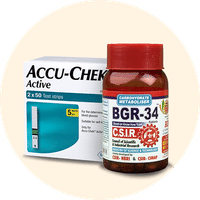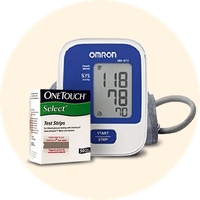Tris Tablet

Rs.64.60for 1 strip(s) (10 tablets each)
food interaction for Tris
alcohol interaction for Tris
pregnancy interaction for Tris
lactation interaction for Tris
food
alcohol
pregnancy
lactation
Tris Tablet may be taken with or without food, but it is better to take it at a fixed time.
None
None
CAUTION
It is unsafe to consume alcohol with Tris Tablet.
UNSAFE
Tris Tablet may be unsafe to use during pregnancy. Although there are limited studies in humans, animal studies have shown harmful effects on the developing baby. Your doctor will weigh the benefits and any potential risks before prescribing it to you. Please consult your doctor.
CONSULT YOUR DOCTOR
Tris Tablet is probably unsafe to use during breastfeeding. Limited human data suggests that the drug may pass into the breastmilk and harm the baby.
CONSULT YOUR DOCTOR
SALT INFORMATION FOR Tris
Trihexyphenidyl(2mg)
Uses
Trihexyphenidyl is used in Parkinson's disease and drug induced abnormal movements.
How it works
Trihexyphenidyl is an anticholinergic medication. It works by decreasing the activity of a chemical messenger (acetylcholine) in the brain. This improves muscle control and reduces stiffness in Parkinson's disease. It also improves movement disorder (restlessness, involuntary movements or muscle spasm) caused by certain other medicines.
Common side effects
Skin rash, Tachycardia, Hallucination, Paranoia, Psychiatric disturbances, Intestinal obstruction, Toxic megacolon, Urinary retention, Weakness, Glaucoma, Increased intraocular pressure
Thioridazine(25mg)
Uses
Thioridazine is used in the treatment of schizophrenia.
How it works
Thioridazine is a typical antipsychotic. It works by blocking the action of dopamine, a chemical messenger in the brain that affects thoughts and mood.
Common side effects
Orthostatic hypotension (sudden lowering of blood pressure on standing), Sleepiness, Dryness in mouth, Abnormality of voluntary movements, Weight gain, Increased prolactin level in blood, Urinary retention, Constipation, Muscle stiffness, Tremors
Trifluoperazine(5mg)
Uses
Trifluoperazine is used in the treatment of anxiety disorder and schizophrenia.
How it works
Trifluoperazine is a typical antipsychotic. It works by blocking the action of dopamine, a chemical messenger in the brain that affects thoughts and mood.
Common side effects
Dryness in mouth, Dizziness, Blurred vision, Insomnia (difficulty in sleeping), Absence of menstrual periods, Muscle weakness, Drowsiness, Difficulty in urination, Extrapyramidal symptoms, Nausea, Vomiting, Fatigue, Rash, Sedation, Decreased appetite, Tardive dyskinesia, Arrhythmia (irregular heartbeats), Cardiac arrest, Prolonged QT interval, Torsade de pointes, Blood dyscrasias, Retinopathy, Cholestatic jaundice, Unusual production of breast milk in women and men
SUBSTITUTES FOR Tris
3 Substitutes
3 Substitutes
Sorted By
 Rs. 54save 19% more per Tablet
Rs. 54save 19% more per Tablet- Zeneril Plus H 2 mg/25 mg/5 mg Tablet(10 tablets in strip)Reliance Formulation Pvt LtdRs. 2.61/Tablet
 Rs. 26.93save 60% more per Tablet
Rs. 26.93save 60% more per Tablet  Rs. 36save 46% more per Tablet
Rs. 36save 46% more per Tablet
Expert advice FOR Tris
- Dry mouth may occur as a side effect. Frequent mouth rinses, good oral hygiene, increased water intake and sugarless candy may help.
- It may cause dry eyes. Avoid wearing contact lenses and inform your doctor if it bothers you.
- It may cause dizziness and sleepiness. Do not drive or do anything requiring concentration until you know how it affects you.
- Monitoring of intraocular pressure is required while taking this medicine, as an increase in eye pressure may cause blurry vision.
- Inform your doctor if you suffer from glaucoma or if you have trouble passing urine.
Frequently asked questions FOR Tris
Trihexyphenidyl
Q. Is Trihexyphenidyl a narcotic? Can I get high after taking Trihexyphenidyl?
No, Trihexyphenidyl is not a narcotic. However, its hallucinogenic and euphoriant properties may make the people abuse its use.
Q. Does Trihexyphenidyl make you drowsy?
Yes, Trihexyphenidyl may cause drowsiness in some cases. Some people may even experience difficulty in falling asleep. Do not drive or operate heavy machinery when you experience drowsiness or if it causes blurring of vision, dizziness, mild nausea and mental confusion.
Q. What happens if more than the recommended doses of Trihexyphenidyl are taken?
Taking more than the recommended doses of Trihexyphenidyl may cause flushing of the skin, nausea, vomiting, dilated pupils, increased heartbeat, rapid respiration, fever, increase in blood pressure, and dryness of mouth, tongue and skin. A rash may appear on the face or upper trunk. You may also experience restlessness, confusion, hallucinations, paranoid and psychotic reactions, incoordination, delirium (a state of mental confusion and emotional disruption) and occasionally convulsions.

















